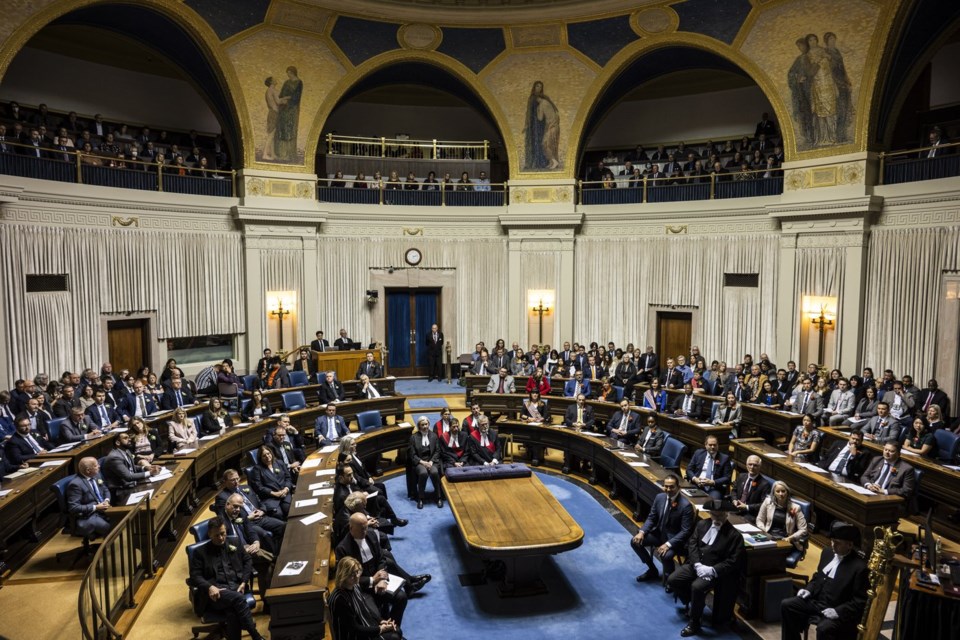WINNIPEG — The Manitoba government is looking to change some of the rules governing municipal zoning bylaws to speed up development.
A bill before the legislature would increase the minimum number of people opposed to a zoning bylaw change needed to trigger a hearing before the provincial Municipal Board.
Currently, 25 objections are enough to require a hearing.
The bill would raise that to 300 in communities with at least 6,000 residents.
In smaller communities, the minimum would be 100 residents or five per cent of the population, whichever is greater.
Municipal and Northern Relations Minister Ian Bushie says the change would make it easier and faster for communities to build new housing, because the Municipal Board has a backlog of hearings.
"It's more engaging because we get that opportunity to be able to actually move, and we don't have something that's tied up necessarily at the Municipal Board level," Bushie told reporters Wednesday.
The changes would apply to all zoning bylaw changes, not just housing, he added.
The group that represents municipalities said it supports the move, partly because it would keep more matters at the local level instead of having them go to the provincial board.
"The Association of Manitoba Municipalities appreciates this initial step in raising the objector threshold, which will not only reduce unnecessary costs and delays but also help restore greater municipal autonomy,” said Kathy Valentino, the association's interim president.
This report by The Canadian Press was first published Oct. 16, 2024.
Steve Lambert, The Canadian Press

